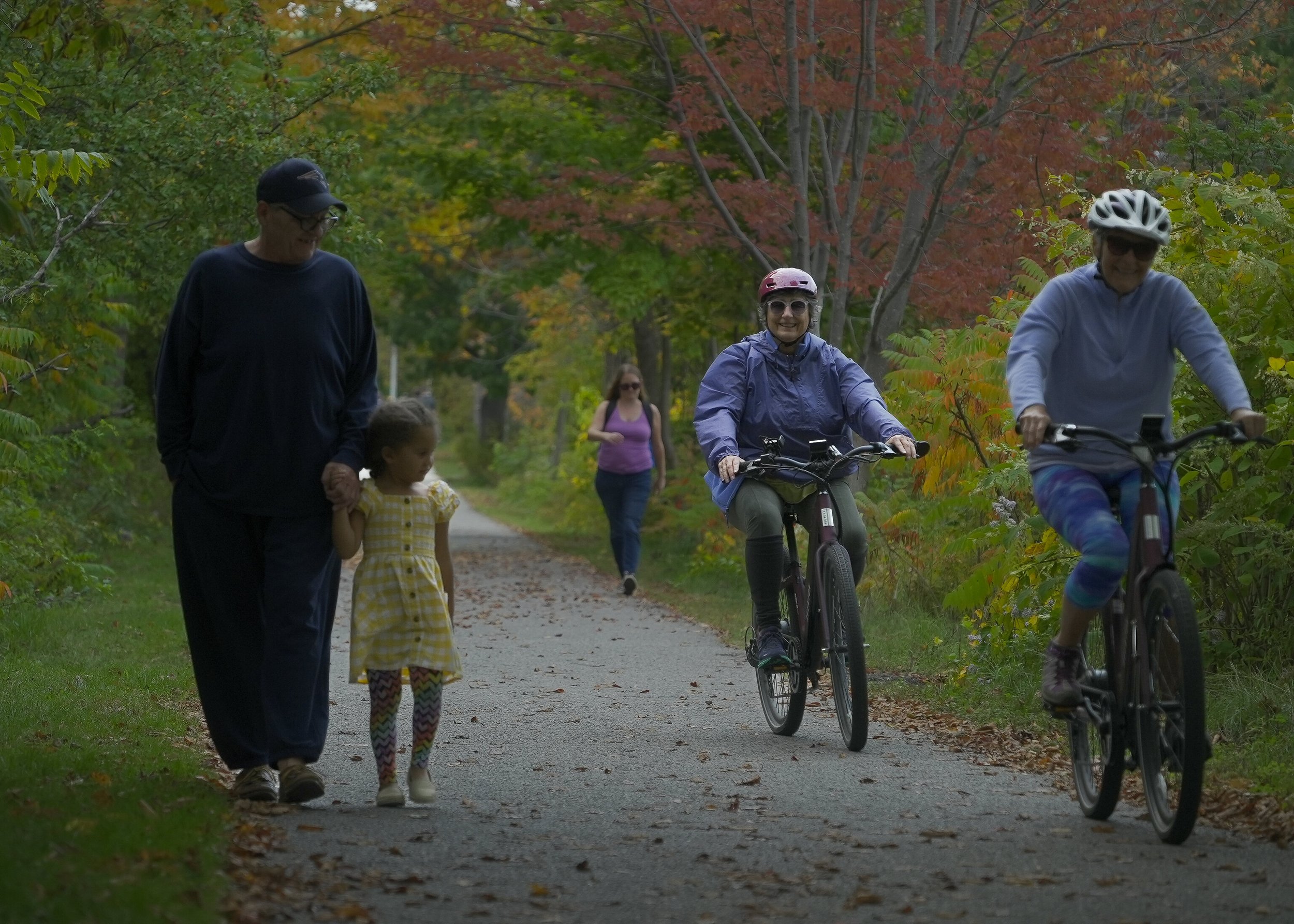Mobility Access and Transportation Insecurity (MATI) Project
The MATI Project aims to address transportation insecurity for people from a range of identities who are experiencing very low incomes.
Project Overview
Moving Maine and Cumberland County Public Health are partnering with the Greater Portland Council of Governments to lead the process to design a plan for a regional collaborative equitable mobility program. The program will address transportation insecurity for people from a range of identities who are experiencing very low incomes in Southern Maine.
The project is currently in Phase 1 (July 2024 - July 2025), which will result in a comprehensive needs and assets assessment around culturally relevant transportation access in Southern Maine, as well as coalition-building among stakeholder organizations. The project is rolling out a community survey and hosting five listening sessions aimed at gathering input from individuals with firsthand experience riding the bus in the region.
The program will support the planning and development of a demonstration project that addresses issues of transportation insecurity. The final plan will include a free or reduced-cost bus pass program, mobility navigation services, and recommended solutions to address current accessibility barriers.
The MATI project is administered by the University of Minnesota with funding from the Federal Transit Administration.
The region of focus is based on the federally designated urbanized area of Northern York County and Cumberland County – also known as the PACTS region (Portland Area Comprehensive Transportation System).
Services include Greater Portland Metro, RTP’s Lakes Region Explorer, Biddeford Saco Old Orchard Beach (BSOOB) Transit, and York County Community Action Corporation (YCCAC) fixed/flex route.
Region of Focus
Lead Partners:
Project Goals
Create a Free & Reduced Bus Pass Program
Develop the plan to launch a free and discounted bus pass program for people with low incomes. Use an “institutional pass program” model that creates a collective of nonprofit organizations.
Design Mobility Navigation
Design culturally specific mobility navigation services and tools that will enable the pass program to be successful.
Address Accessibility Barriers
Make a plan to address current accessibility barriers – including challenges for people with disabilities, limited English proficiency, and lower literacy.
Partner Roles
The project is led by the Moving Maine Network, Cumberland County Public Health, and the Greater Portland Council of Governments. Partners will include transportation providers, community agencies and organizations that include immigrant-led and community-based organizations.
The following groups were formed to collaborate and provide guidance on the project processes.
-
The Council holds a decision-making role in designing the demonstration project plan; and acts as a venue for voice and leadership by people who have lived experience with the challenges presented by the current system and hold insights into ways for it to work better.
The Council is composed of individuals with lived expertise and people in caregiving roles.
-
The Advisory Group provides guidance and promotion for community engagement and offers input on design of pass program and mobility navigation supports.
The Group is composed of representatives from community-based organizations and institutions in the region from a variety of sectors: aging and disability, health care, public health, food security, housing, and social services.
-
The Work Group develop a prototype for the technical design of the pass program, including financing; and refine prototype into a “shovel-ready” plan.
The Group is composed of representatives from transit agencies, anchor institutions, GPCOG transit planners, technical assistance consultant.
Tell us about your experience riding the bus!
Check out the survey’s outreach toolkit to help us the spread the word about the survey!
Contact
For questions about the MATI project, please email at us info@movingmaine.org or fill out the form.








